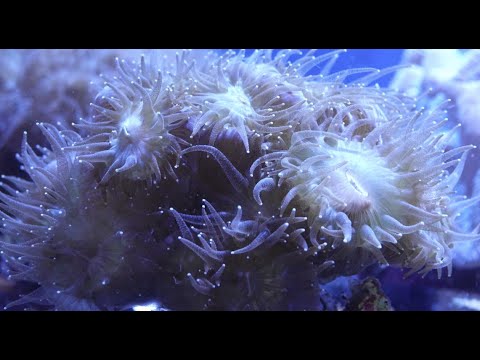- The Texas State Aquarium, a pioneer in wildlife conservation, focuses on in-house scientific techniques for coral conservation, particularly concentrating on processing and maintaining coral species.
- Processing coral involves understanding and nurturing the biological, ecological, and physical attributes of corals to bolster their resilience against environmental stressors.
- Data collection and analysis are crucial for monitoring coral health, understanding ecological interactions, and assessing the effectiveness of conservation efforts.
- The role of technology in coral conservation at Texas State Aquarium includes advanced data analytics, remote sensing, and genetic studies to foster innovation in conservation strategies.
- Community involvement and education are emphasized, promoting public awareness and participation in coral reef conservation efforts.
In recent years, the Texas State Aquarium has made significant strides in its conservation efforts, particularly with coral species. Central to these initiatives is understanding the complex mechanisms of processing coral, accompanied by diligent data management practices. These measures not only fortify coral resilience but also ensure the long-term viability of marine ecosystems.
Processing coral starts with an acute understanding of its physiological needs. Corals require specific conditions for optimal growth, including precise light, temperature, and salinity levels. The Texas State Aquarium employs rigorous techniques to simulate these conditions, utilizing advanced aquaria systems equipped with adaptive lighting and temperature control. This physiological understanding expands into a broader ecological perspective, examining how corals interact with their environment, including symbiotic relationships with algae and other marine organisms.
Beyond ecological considerations, the aquarium delves into the biological intricacies of coral species. Genetic studies have become a cornerstone of this research, offering insights into coral adaptability and resilience. By identifying genetic traits associated with stress resistance, scientists at the aquarium can selectively propagate corals poised to thrive amid climate change challenges. This effort combines traditional knowledge with cutting-edge science, illustrating the ongoing evolution of conservation methodologies.
The significance of data in coral conservation cannot be overstated. Detailed data collection allows for the monitoring of coral health and the tracking of growth patterns over time. The Texas State Aquarium utilizes data analytics to assess the effectiveness of conservation practices. This includes the application of remote sensing technology, which offers a high-resolution view of coral ecosystems, even from distant locales. These tools enable scientists to detect subtle changes in the environment, providing an early warning system for potential issues such as disease outbreaks or environmental shifts.
Technological innovation further complements the aquarium’s conservation strategy. The deployment of machine learning algorithms improves the accuracy of data interpretation, enhancing the ability to make predictions about coral health and environmental interactions. Additionally, the integration of genetic sequencing technology facilitates a deeper exploration of coral biodiversity. This approach is instrumental in crafting effective management plans, allowing the aquarium to tailor its strategies to the unique needs of each coral species it hosts.
Engagement with the community forms a pivotal component of the Texas State Aquarium’s conservation efforts. Public education initiatives aim to raise awareness about the significance of coral reefs and the challenges they face. Through workshops, exhibitions, and interactive programs, the aquarium empowers individuals to take part in marine conservation. Such efforts are designed not only to educate but to inspire action, fostering a sense of responsibility towards preserving these vital underwater ecosystems.
The Texas State Aquarium Conservation Series exemplifies how a blend of scientific expertise, technological application, and public engagement can drive successful coral conservation. This holistic approach ensures that conservation measures are robust and adaptable to forthcoming challenges. By continuously refining these strategies, the Texas State Aquarium remains at the forefront of coral conservation, working diligently to preserve the biodiversity that sustains our oceans. This ongoing commitment highlights the effectiveness of proactive and informed conservation tactics in fostering a sustainable future for coral reefs.
*****
Source Description
Coming back from Hawai’i, the Bahr Marine Ecology Lab will need to process the coral samples and processing data to learn more about how these corals are growing under different chemistries of ocean acidification. You’ll also hear from a variety of students who are currently doing research in the lab!


